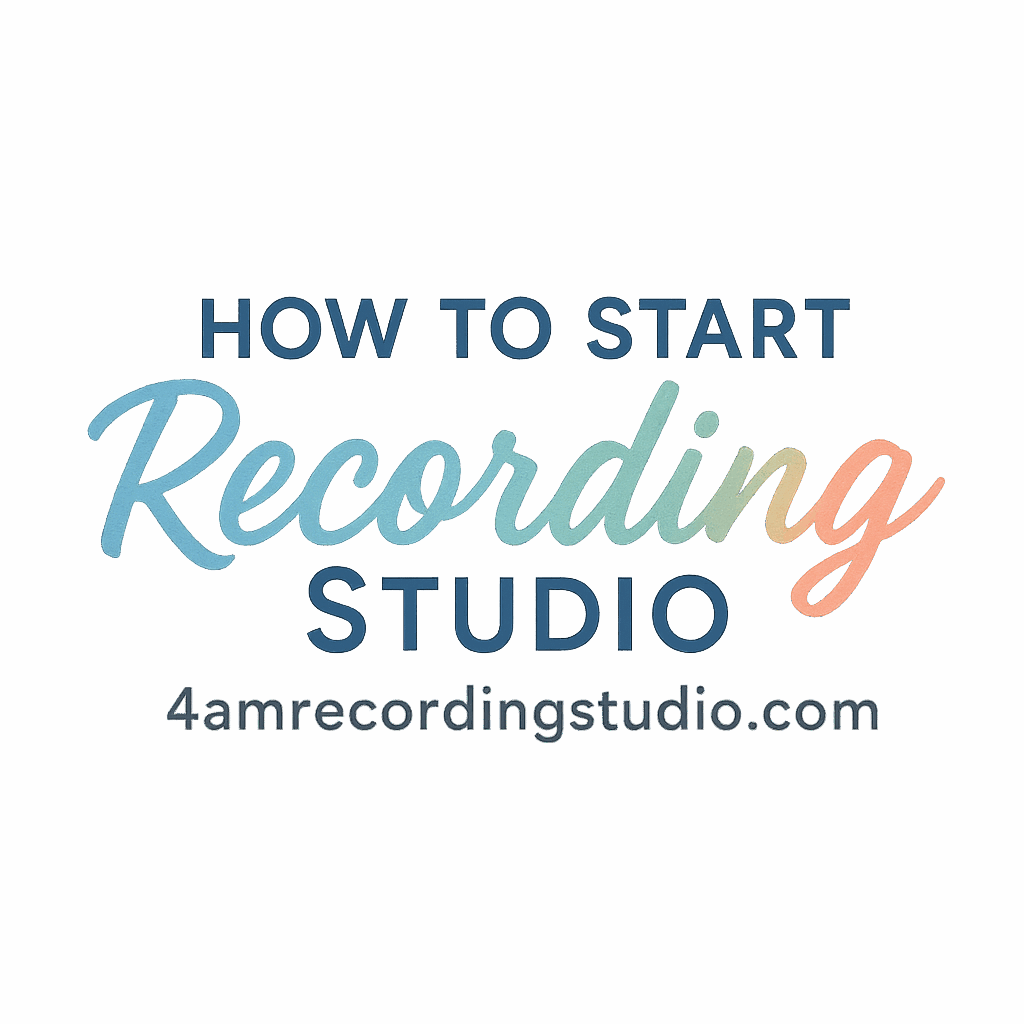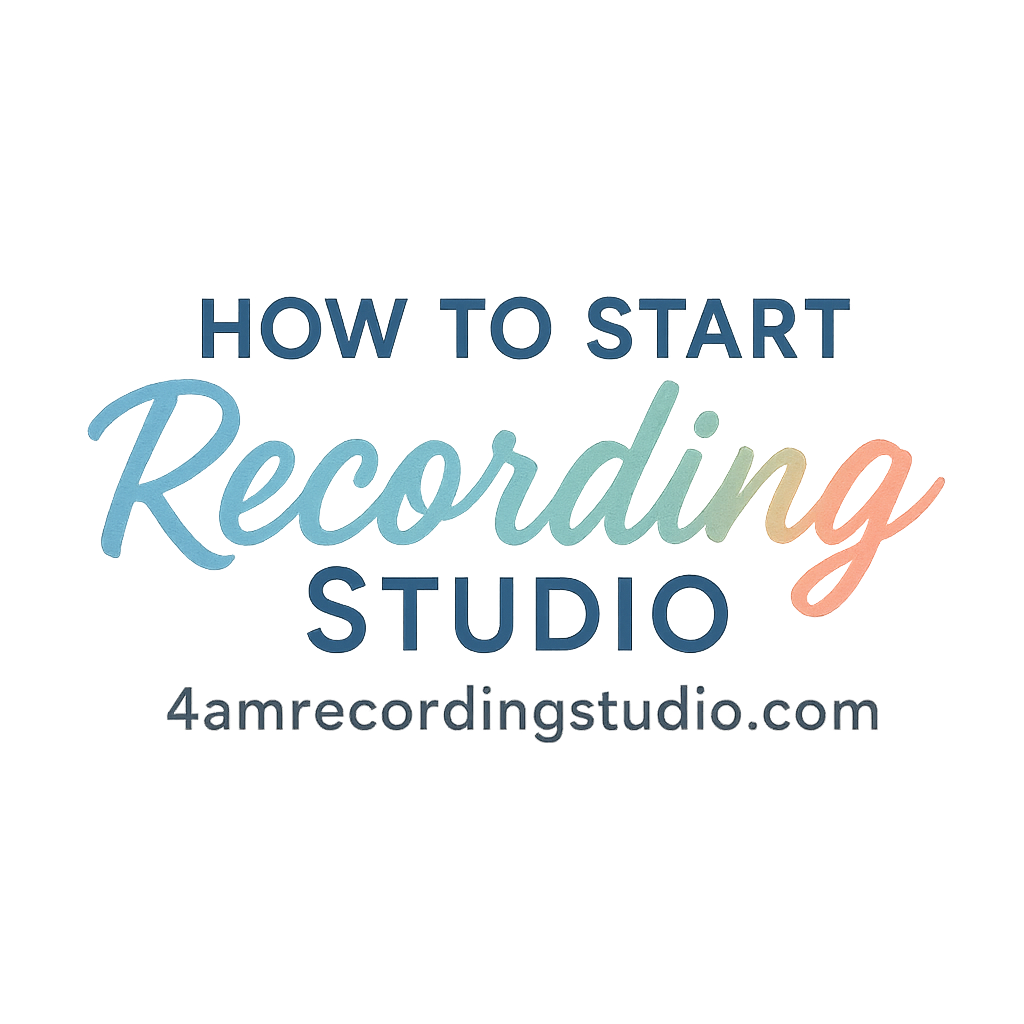Let’s face it — your recording studio is your sanctuary. It’s where magic happens, beats drop, and tracks are born. But behind all that creativity, there’s a practical side you can’t ignore: safety.
Whether you’re just starting out or running a busy, established space, these 8 safety tips for running a recording studio will help you protect your gear, your space, and the people in it.
And yeah — this stuff isn’t just for insurance purposes. It’s about keeping your creative zone free of chaos and mishaps.
Why Studio Safety Should Be Your Top Priority
We know, safety isn’t the sexiest topic when you’re focused on producing chart-toppers. But think about it: what happens if someone trips on a cable, or your gear gets fried due to a power surge?
A single accident could shut down your business, damage thousands of dollars in equipment, or worse, put someone in danger. A safe studio is a productive studio — and it’s key to long-term recording studio management and growth (source).
Let’s get into the nitty-gritty.
Tip #1: Keep Your Cables Organized
Label, Wrap, and Store Wisely
Cables are the veins of your studio — but they can also be a tripping hazard. Always label them clearly and store unused ones properly. Use Velcro ties or cable sleeves to keep them neat and tidy.
Invest in Cable Management Tools
There are entire products built just for this — cable trays, racks, and under-desk mounts. Trust us, a clean cable layout not only looks better, it drastically reduces risks.
Relevant Internal Tags: #organize, #recording-studio
Tip #2: Fire Safety Is No Joke
Choose the Right Fire Extinguisher
Every studio should have a Class C fire extinguisher on hand (that’s the kind for electrical fires). Mount it near the main exit and make sure everyone knows how to use it.
Fire Alarms and Smoke Detectors Are a Must
Install smoke detectors, and check their batteries regularly. A smoke alarm might save your entire setup from disaster.
Need help with setup basics? We’ve got you: Recording Studio Setup Basics
Relevant Internal Tags: #setup, #how-to-start
Tip #3: Use Proper Ventilation and Climate Control
Electronics + Heat = Bad News
Your equipment generates heat, and too much of it can lead to failure. A well-ventilated space keeps your gear (and your clients) cool.
Maintain Good Air Quality for Clients and Gear
Dust and humidity are silent killers of studio electronics. Consider an air purifier and dehumidifier to protect your investment — and make long sessions more comfortable.

Relevant Internal Tags: #equipment, #instruments
Tip #4: Secure Your Studio Against Theft
Lock It Down with Smart Security Systems
Use smart locks, security cameras, and alarm systems. If you rent a space, make sure it has reinforced doors and solid locks.
Keep an Inventory of Equipment
Create a detailed gear list with serial numbers. It helps with insurance and can be a lifesaver if anything gets stolen.
Related Reads: Recording Studio Business Planning
Tags: #music-gear, #earnings, #income
Tip #5: Practice Electrical Safety
Don’t Overload Power Strips
Plugging too much gear into one outlet is a recipe for disaster. Spread out your power usage across different circuits and use surge protectors.
Hire a Pro for Electrical Work
DIY wiring might sound fun, but it can be incredibly dangerous. Get a licensed electrician to handle any electrical upgrades or issues.
Tags: #controller, #music-business
Tip #6: Make Emergency Exits Accessible
Create Clear Exit Pathways
Don’t block doorways with gear or furniture. In an emergency, you need a fast and easy exit.
Add Exit Signage with Lighting
Use glow-in-the-dark exit signs or LED lights near doors, especially if you record in a low-light environment.
Tags: #management, #studio
Tip #7: Ergonomics Matter for Long Sessions
Invest in Supportive Furniture
Recording sessions can stretch into hours — make sure your chairs, desks, and monitor stands support good posture and comfort.
Design for Comfort and Function
Don’t just squeeze gear into a corner. Think about your workflow, reach, and movement during sessions. Ergonomics = less strain, better work.
Relevant Post: Recording Studio Setup Basics
Tip #8: Have a First Aid Kit (and Know How to Use It)
Stock Up on Essentials
Bandages, antiseptic wipes, gloves — the basics matter. Place your first aid kit where everyone can see and reach it.
Train Your Team in Basic First Aid
You don’t need to be a paramedic, but basic CPR and injury response training can make a huge difference.
Extra Tips to Keep Your Studio Safe
Limit Food and Drinks Near Gear
Accidents happen. Don’t let coffee take out your MIDI controller.
Explore: Tag: MIDI
Set Clear Safety Policies
Make safety a part of your studio culture. Post reminders, go over rules with new clients, and keep everyone in the loop.
Final Thoughts on Recording Studio Safety
Running a studio is more than just soundproofing and Pro Tools. Keeping your space safe protects your gear, your business, and your peace of mind.
Start small — organize your cables, install a smoke detector, and train your team. Over time, these habits build a strong foundation for your studio’s success.
Need more guidance? Dive into our resources at 4amRecordingStudio.com for advice on everything from setup to marketing and branding.
FAQs
1. What kind of fire extinguisher should I use in my recording studio?
Use a Class C extinguisher for electrical fires — it’s essential for studios filled with electronics.
2. How do I keep my cables safe and organized?
Use cable sleeves, label everything, and avoid letting cords pile up where people walk.
3. Should I install security cameras in my studio?
Absolutely. They deter theft and give you peace of mind when you’re away.
4. Is food in the studio really that big of a problem?
Yes. Spilled drinks and snacks can ruin expensive gear. Keep food and gear separate.
5. What’s the biggest safety mistake new studio owners make?
Ignoring electrical safety. Don’t overload outlets or skip grounding your equipment.
6. How often should I check my smoke detectors?
At least once a month. Change the batteries every 6 months.
7. Why is air quality important in a studio?
Poor air can damage gear and make long sessions uncomfortable. A clean, climate-controlled space improves longevity and productivity.


